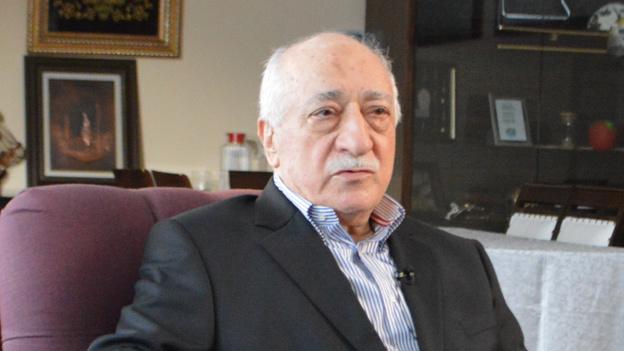Turkey coup aftermath: Pro-Kurdish Istanbul protests broken up
- Published
Demonstrators dispersed as they were hit by freezing water
Turkish police have used water cannon and tear gas to break up a protest in Istanbul against the arrest of leaders of the pro-Kurdish HDP party.
Demonstrators assembled outside a mosque in the Sisli district and shouted slogans denouncing the "fascist" state before scattering as they were sprayed with freezing water.
Nine HDP figures, including its co-leaders, were jailed on Friday.
Journalists from the pro-opposition Cumhuriyet newspaper are also in jail.
Nine journalists were arrested on Saturday and remanded in custody by a court in Istanbul.
Cumhuriyet's editor, a well-known cartoonist, and an anti-government columnist were among those detained.
It is the latest in a string of legal moves against critics of President Recep Tayyip Erdogan since July's attempted coup.
On top of the nine HDP detentions on Friday, a further nine party officials, including regional heads from the south-eastern province of Adana, were taken into custody on Saturday.
The Cumhuriyet newspaper is one of the few Turkish media outlets which remains critical of Mr Erdogan.
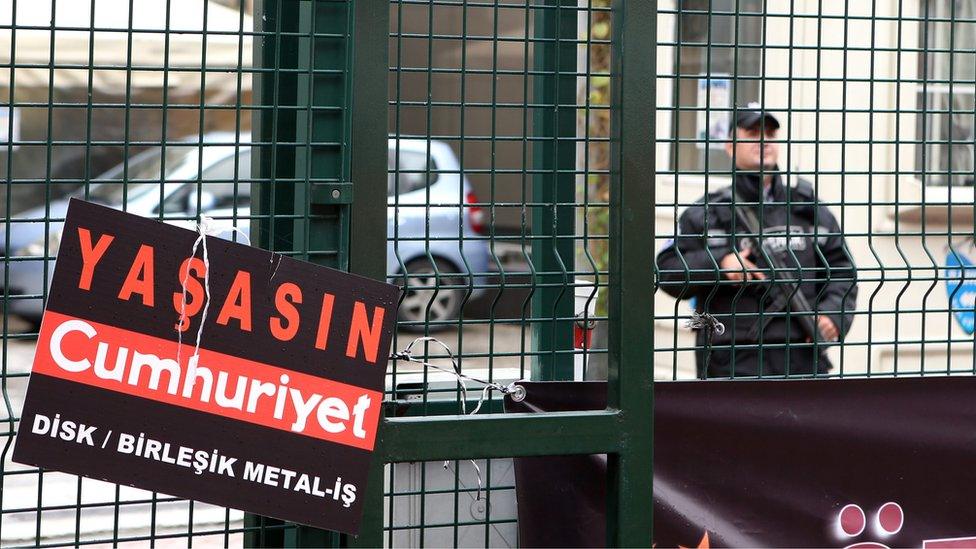
A placard outside the newspaper's Istanbul office read, "Long live Cumhuriyet"
Its journalists have been charged with links to US-based cleric Fethullah Gulen, who is accused of plotting the coup attempt.
On the night of 15 July, rebel soldiers used military hardware including tanks and fighter jets to try to seize control.
Since the coup attempt, a total of about 110,000 people, mainly state employees, have been sacked or suspended and 37,000 arrested.
Both the Cumhuriyet journalists and HDP politicians will be held in jail until trial. No date has been set for either hearing.
Cumhuriyet was one of four winners of the "alternative Nobel Prize" in October, alongside Syria's White Helmets and others., awarded for "fearless investigative journalism and commitment to freedom of expression in the face of oppression, censorship, imprisonment and death threats."
Friday's arrests coincided with a bomb blast in the Kurdish-dominated city of Diyarbakir in the south-east which killed 11 people and injured dozens more.
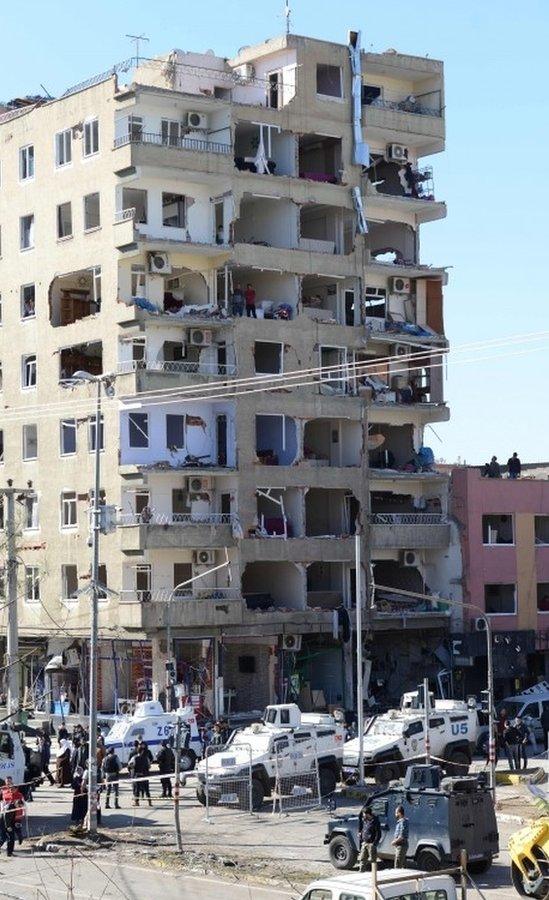
A building damaged in the Diyarbakir attack
Confusion remained on Saturday as to who carried out the attack.
The governor's office in Diyarbakir said that the Kurdish militant PKK, which has conducted a campaign of violence for Kurdish autonomy, was behind the blast. It based this on what it said were intercepted communications.
But on Friday, so-called Islamic State (IS) said, via its Amaq news agency, that it was behind the attack.
'Opponents silenced'
President Erdogan currently holds emergency powers in the aftermath of the failed July coup.
They allow the president and his cabinet to bypass parliament when drafting new laws and to restrict or suspend rights and freedoms.
Critics claim he is using those powers to silence opponents. At the beginning of November, 15 media outlets were closed and 10,000 civil servants were dismissed.
- Published4 November 2016
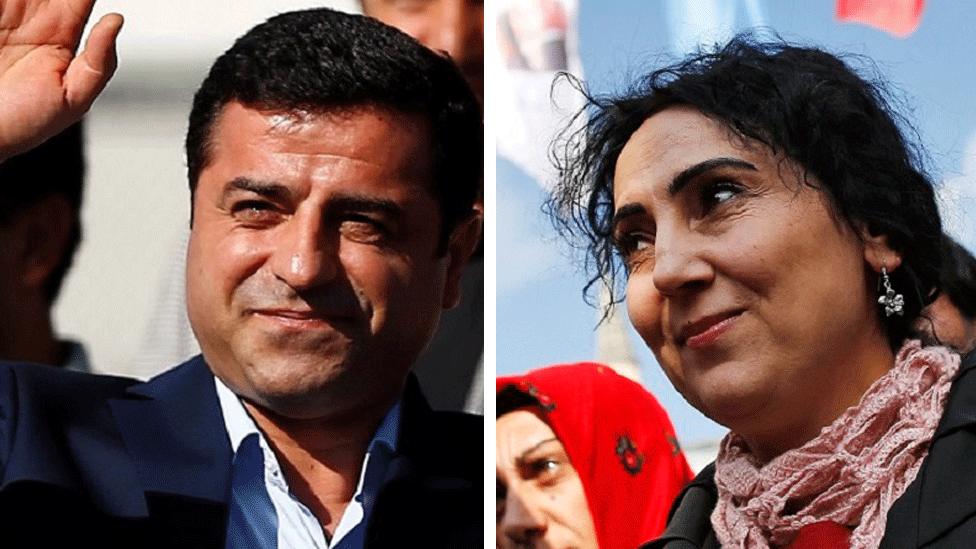
- Published20 July 2016
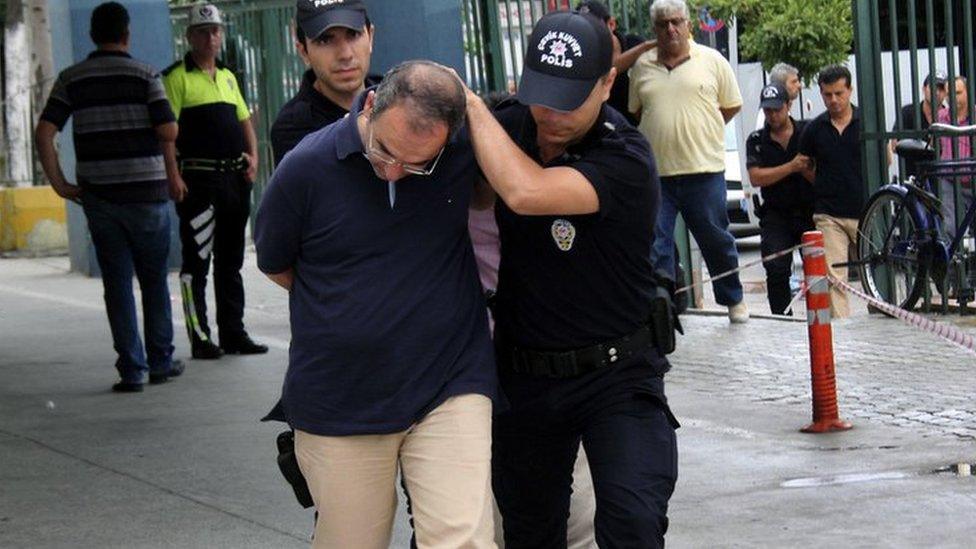
- Published4 November 2016
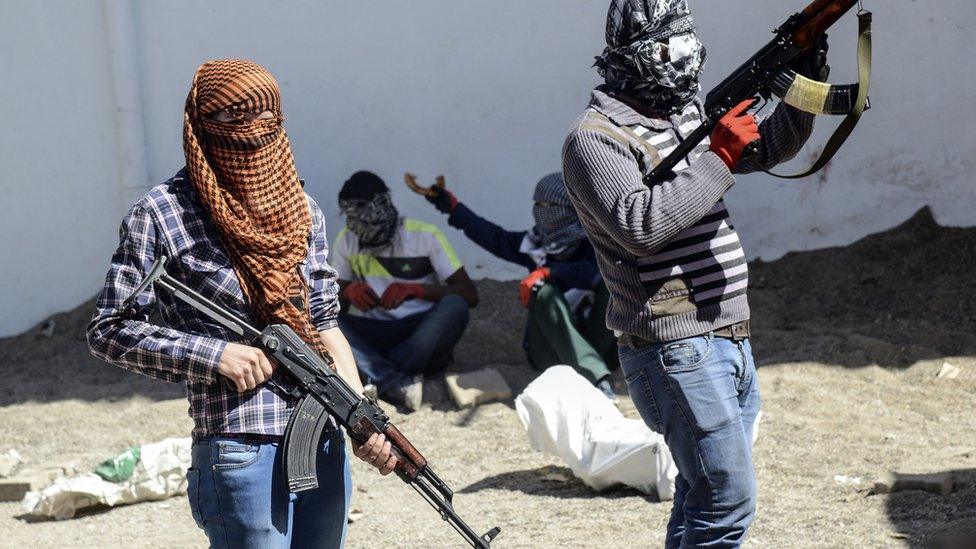
- Published27 January 2014
